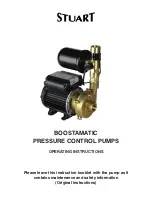
22
Figure 2-1
: Cutting Height
CENTER 3-POINT LINK ADJUSTMENT
1.
Lower cutter deck to the nominal
cutting height.
Note: Customer may adjust center 3-point link
to his or her preference. Lengthening center 3-
point link allows more movement while going
over raised surfaces.
Shortening the link allows more movement
while crossing over ditches. Also, shortening
center link allows the cutter to be carried
higher while traveling. Never lengthen center
link to where the cutter is carried too low.
2.
Typically, the center 3-point link is
adjusted so that the upper 3-point
clevis pin is straight above the lower
3-point hitch pins. This arrangement
allows for optimum ground contour
following performances.
3.
Adjustment on center 3-point link can
be made depending on customer’s
preference.
TAILWHEEL HEIGHT ADJUSTMENT
Refer to Figure 1-8 on page 13:
The deck slope should be adjusted so that
the cutting blades are slightly lower than at
the front of the cutter than at the back. If
they are not, the tailwheel must be adjusted
up or down until the deck slope is correct.
1.
Make sure instructions for setting the
“Cutting Height Adjustment” have
been followed before continuing with
adjusting tailwheel height below.
2.
Use tractor’s 3
-point hydraulic control
to lift tailwheel off the ground.
3.
Remove Hex bolts M12x40 (#9), plain
washers 12 (#8) and lock nuts M12
(#7). Adjustment
4.
tailwheel as follows:
a.
To lower blade height at the
rear, raise tailwheel.
b.
To raise blade height at the rear,
lower tailwheel.
5.
With tailwheel adjusted to the correct
position, reinstall Hex bolts M12x40
(#9), plain washers 12 (#8) and lock
nuts M12(#7). Draw locknut up snug,
do not tighten until after rechecking
deck cutting height.
6.
Recheck deck cutting height. Refer to
instructions for adjusting the
“Cutting Height Adjustment”
on
page 21.
7.
After the deck cutting height and
tailwheel height are adjusted
correctly, tighten locknuts M12 (#7) to
the correct torque.















































